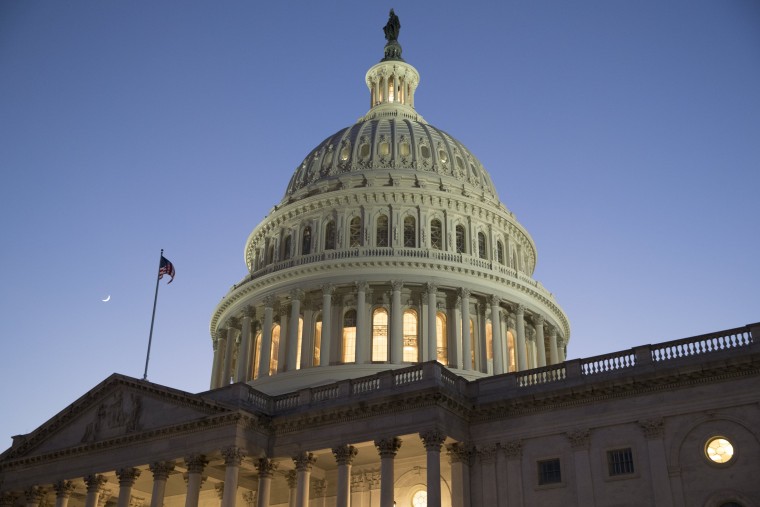There's never been a government shutdown when one party controls the White House and both chambers of Congress. That may change in two days.
President Donald Trump is confident that Democrats will take the blame if the government shuts down this weekend or Congress fails to find a fix to prevent DACA recipients from being deported. But Republicans on Capitol Hill aren't so sure.Many of them fear that voters will fault the GOP after looking at Trump's decision to end the Deferred Action for Childhood Arrivals program, his past flirtation with letting federal funding expire and the fact that Republicans are in control of the White House, the Senate and the House.
In theory, one might expect lawmakers to prevent a shutdown by simply approving another stopgap spending measure -- Congress' fourth in as many months -- to keep the government's lights on for a few weeks while work continues on a broader agreement.
In practice, it's not that easy. After Trump created an immigration mess by taking steps to end DACA, Dreamers are facing deadlines that require swift action by Congress. With that in mind, congressional Democrats expect DACA protections to be part of the bill that prevents a shutdown.
Indeed, Dems are so committed to that goal that they struck a bipartisan deal with Senate Republicans that gives the White House much of what it wants -- to my mind, perhaps too much -- in order to clean up the DACA mess that Trump created. Nevertheless, the president who said he'd back any bipartisan agreement, no matter what's in it, has been persuaded by the far-right to reject the deal, making a shutdown more likely.
But this is a machine with a lot of moving parts, and the fight isn't limited to immigration.
House Republican leaders, for example, unveiled their own stopgap measure -- called a "continuing resolution" (or CR) -- this morning that would kick the funding can down the road until mid-February. But that's not all it would do: the House Republican plan would also tie the spending measure to an extension of the Children's Health Insurance Program (CHIP), while delaying a series of Affordable Care Act taxes.
Congress could, of course, take up CHIP as a stand-alone bill -- it used to be a bipartisan policy that passed easily -- but Republicans appear eager to hold it hostage.
Complicating matters further, the House Freedom Caucus suggested this morning that the House's stopgap measure isn't conservative enough for their tastes, making a shutdown more likely. GOP leaders could move the bill even further to the right, but that would alienate Senate Democrats whose votes are needed, thereby ... let's all say it together ... making a shutdown more likely.
In case that weren't quite enough, negotiations over a longer-term spending package are hung up on a heated fight over budget caps, which won't be easily resolved.
So where does that leave us? Current funding expires on Friday at midnight, and between now and then, policymakers will need to work out some kind of agreement on immigration and health care -- two of the most complex and contentious issues on the policy landscape -- that can meet the approval of far-right House Republicans and at least 60 senators, including nine Democrats.
If that doesn't happen, Donald Trump, who declared in May that he'd like to see "a good shutdown," who created the DACA mess, and who's rejected two bipartisan immigration plans he initially said he'd support, will immediately blame the shutdown on Democrats, who happen to control none of the levers of power.
The president will almost certainly have no explanation as to why a world-class deal-maker like him couldn't negotiate a compromise.
TPM's Alice Ollstein did a nice job summarizing the possible outcomes:
1. The government shuts down and the finger-pointing ensues.2. Trump reverse-reverses, accepts a DACA deal, and pressures conservative Republicans to accept it as well.3. Dems cave on DACA, Republicans cave on spending caps, a short-term deal that solves none of the ongoing problems narrowly passes.
From my desk, I'd put the odds of a shutdown at about 50%. I'm tempted to go higher, but I'm just not sure how many Democrats have the stomach for this fight.
